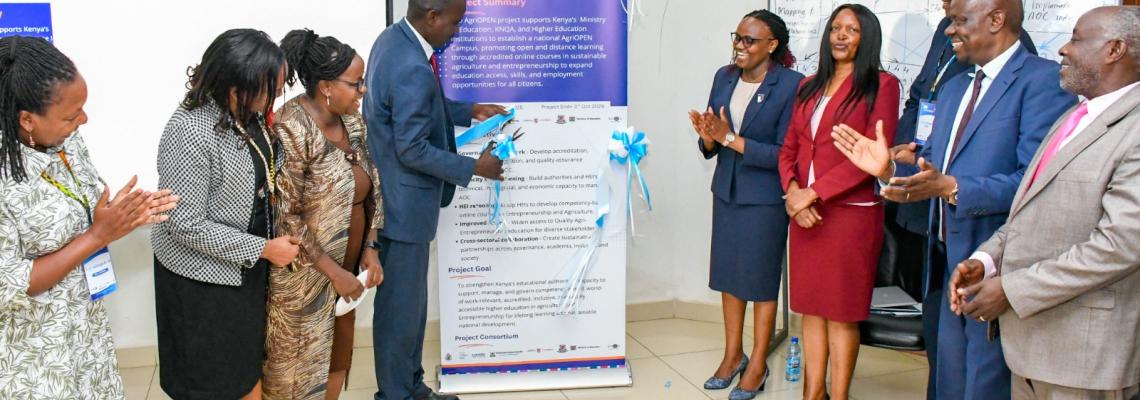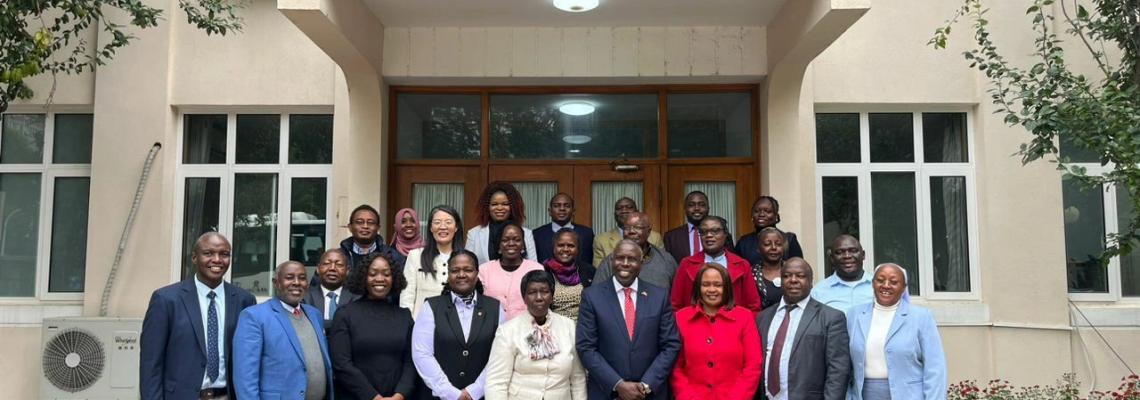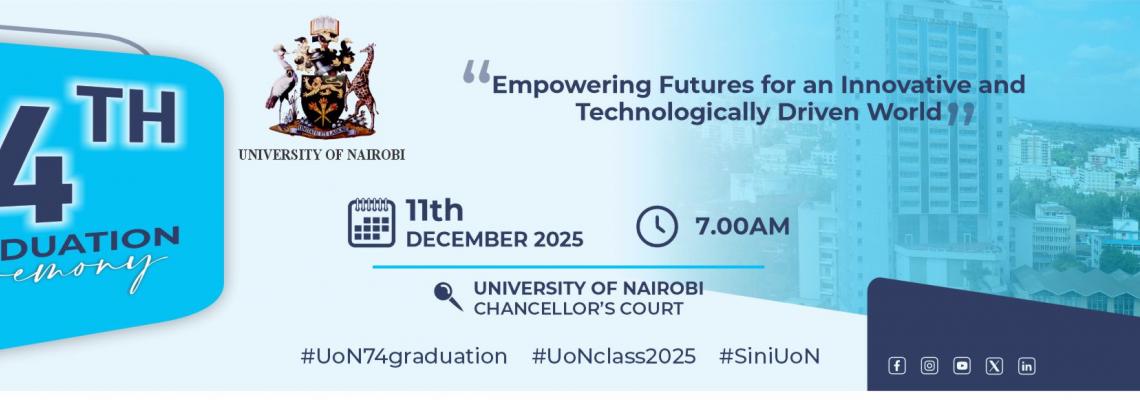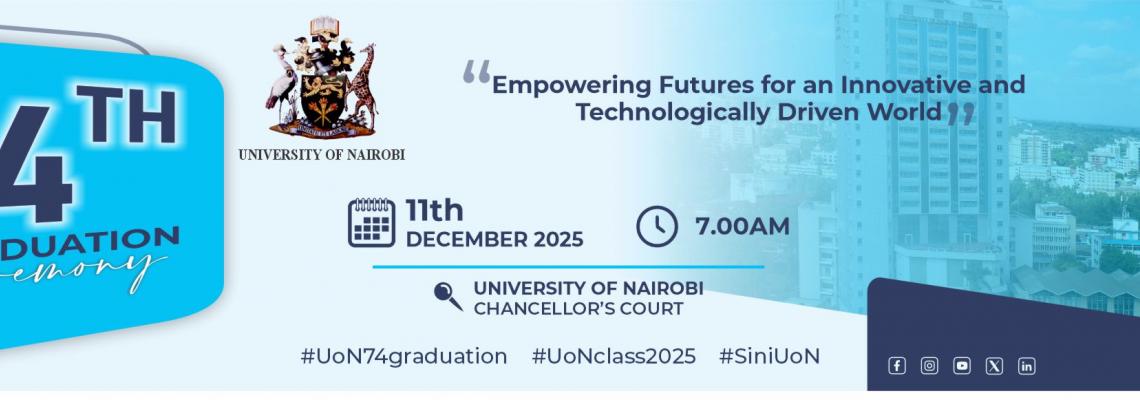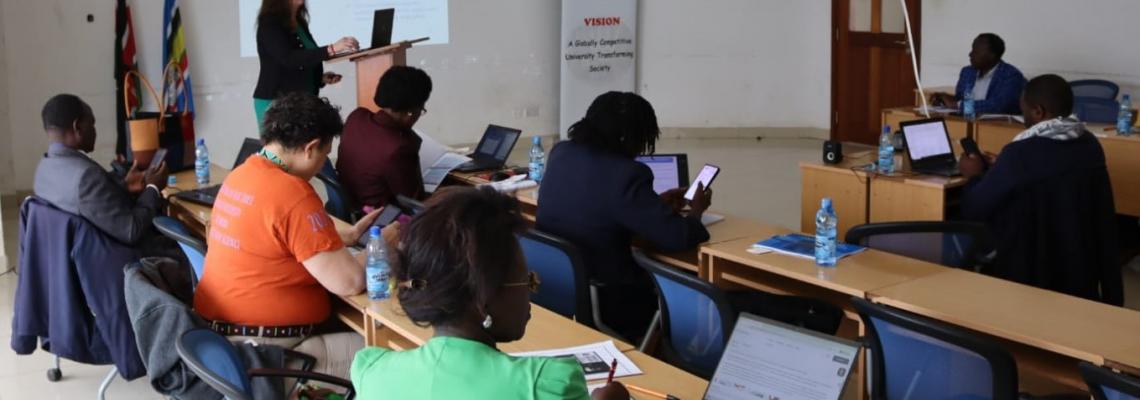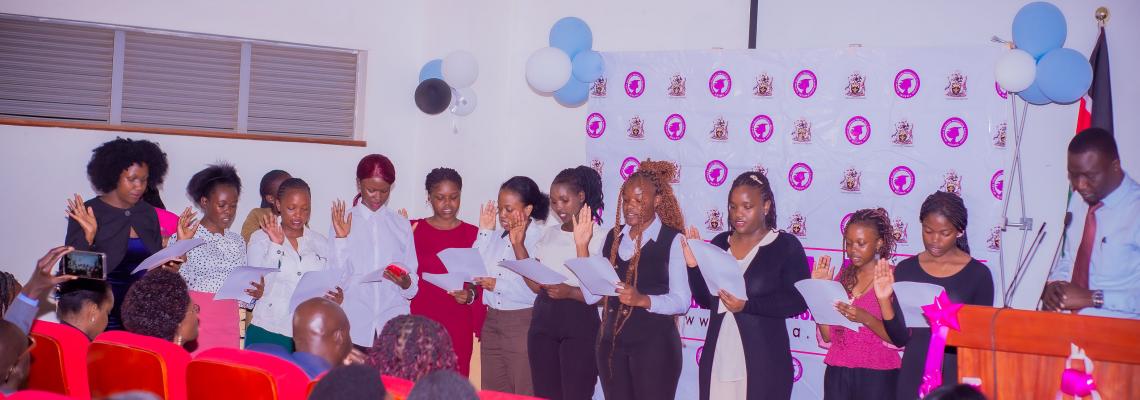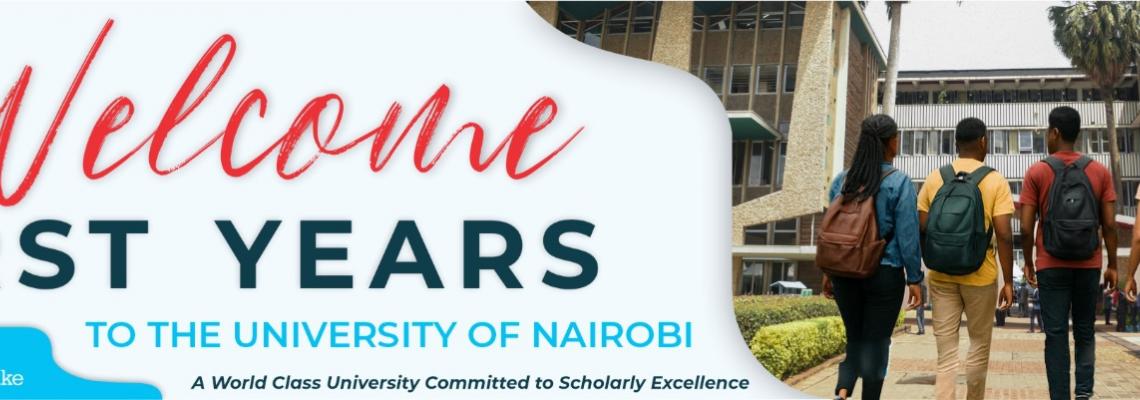Overview
In recognition of the increased demand for and professionalization of education responses in and after emergencies, the University of Nairobi (UoN) in Kenya and the International Rescue Committee (IRC) are partnering to establish accredited Master’s and certificate programs for Education in Emergencies within the UoN’s School of Education. This unique collaboration will seek to develop human resource capacity among enrolled students and education practitioners working in East Africa in order to prepare them to provide vital education programming in emergency and post-crisis settings in developing countries. This NGO-University partnership is a 3-year project commencing in 2009.
Combining coursework, field work and research, the Education in Emergencies program will teach students and practitioners the essential skills and competencies needed to work in the education sector and in mitigating, responding to and rebuilding after complex emergencies. IRC will also support research endeavors conducted by UoN education professors and students, help document practice and policy innovations in the education in emergencies field, and share findings widely with the larger education in emergencies community. Throughout this process of capacity building, program development and research, the University of Nairobi professors and students will be connected with global education in emergencies’ actors and networks. These strategic linkages will ensure that program design, course curricula, research and experiential education opportunities draw upon and complement good practices in place within the larger field of education in emergencies.
Our shared vision is that students studying and practitioners participating in the UoN’s Education in Emergencies program will be better equipped to work in the field of education in emergencies in the East Africa region and that the University of Nairobi will become a regional hub of expertise, learning and training for future generations of leaders in the field.
Goals:
The overarching goals for this project are twofold and include the following:To develop and enhance capacity among students, professors and education practitioners studying, researching and working in the field of education in emergencies (EiE) in East Africa
·To establish the University of Nairobi as a Center of Excellence for education in emergencies (EiE) in the East Africa region and beyond
Structure
A student may enrol in the M.Ed programme either on a full time basis or on a part-time basis.
The part time programme is offered in the evenings and during the school holiday period. The programme offered during the holiday period is also known as the school based programme.
The full time programme shall extend over a minimum of four (4) semesters from the date of registration and a maximum of eight (8) semesters. The course shall consist of coursework, examination and Thesis.
The evening programme shall extend over a minimum of four (4) semesters from the date of registration and a maximum of twelve (12) semesters. The course shall consist of course work, examination and project.
The school based programme shall be an intensive course taught during the school holidays. Two school holidays of four weeks each will constitute a semester.
The programme shall comprise of 18 units.
During the first three semesters, a student shall take ten (10) compulsory (core) units. Each unit consists of 60 contact hours.
A student shall be required to take the 10 Core Units before being allowed to take elective courses for project or embark on their thesis.
A student shall be required to choose the topic for research thesis or project after successful completion of Core Units.
- Research thesis will be after 10 core units and shall be considered to be equivalent to eight (8) units.
- Research project shall be considered to be equivalent to four (4) units.
A student admitted into the M.Ed degree programme will specialize in any one of the following subject areas:
- Educational Administration
- Educational Planning
- Economics of Education
- Corporate Governance in Education
- Curriculum Studies
- Education in Emergencies
Thesis, after the 10 core units.
Project – 4 extra taught units
Admission Requirements
ADMISSION REQUIREMENTS
The admission requirements are Bachelors of Education degree from the University of Nairobi; or any other institution recognized by Senate. Specifically;
- Bachelors of Education (Upper Second Class Honours) degree or equivalent qualifications.
- Bachelors of Education degree (Lower Second Class Honours) with at least two years working experience.
- Postgraduate Diploma in Education or equivalent qualifications.
Careers
M.Ed Graduates (Education in Emergencies) may undertake a variety of professional roles which include providing management and leadership within the education sector in the government, and private sector, training can work nationally and internationally in the education sector, monitoring and evaluation of education and social sector, undertake research, for organizations including central and county governments, NGOs, Consultants among other sectors. Many are also well-equipped to apply for and pursue doctoral-level work in Comparative and International Education. Finally, our graduates have been absorbed as lecturers in a number of universities in Kenya.
Fees and Funding
| MASTER OF EDUCATION -E55 | YEAR 1 | YEAR 2 | |||
| SEMESTER 1 - 5UNITS | SEMESTER 2 - 5UNITS | SEMESTER 1 -4UNITS | SEMESTER 2-PROJECT | TOTALS | |
| TUITION @ 25200 | 126,000.00 | 126,000.00 | 100,800.00 | 100,800.00 | 453,600.00 |
| MEDICAL FEE (PER YEAR) | 6,500.00 | - | 6,500.00 | - | 13,000.00 |
| ICT SERVICES - (PER YEAR) | 7,000.00 | - | 7,000.00 | - | 14,000.00 |
| EXAMINATION (PER UNIT @1000) | 5,000.00 | 5,000.00 | 4,000.00 | - | 14,000.00 |
| REGISTRATION (PER SEMESTER@2250) | 2,250.00 | 2,250.00 | 2,250.00 | 2,250.00 | 9,000.00 |
| ID CARD ( PER YEAR) | 1,000.00 | - | 1,000.00 | - | 2,000.00 |
| ACTIVITY-( PER YEAR) | 2,000.00 | - | 2,000.00 | - | 4,000.00 |
| CAUTION - (ONCE) | 5,000.00 | - | - | 5,000.00 | |
| LIBRARY (PER YEAR) | 5,000.00 | - | 5,000.00 | - | 10,000.00 |
| STUDENT ORGANISATION(PER YEAR) | 1,000.00 | - | 1,000.00 | - | 2,000.00 |
| THESIS EXAMINATION | - | - | - | 30,000.00 | 30,000.00 |
| Totals | 160,750.00 | 133,250.00 | 129,550.00 | 133,050.00 | 556,600.00 |
| Grand totals | 556,600.00 | ||||

